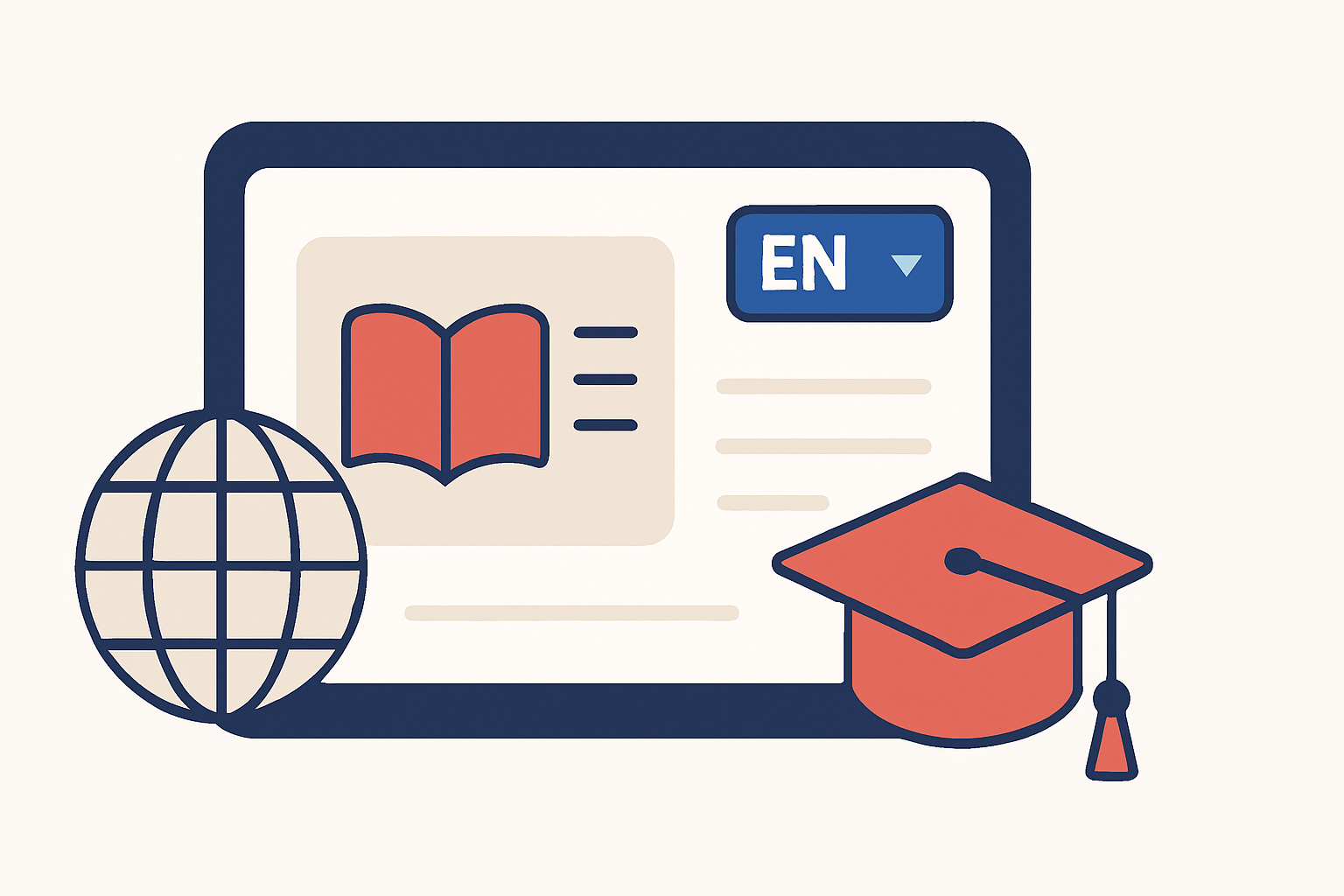Multi-Language Support for Education Creators

Education creators today face a significant challenge: while many want to share their learning content worldwide, language barriers often limit their reach and impact. Learners expect accessible, engaging, and localized experiences that speak directly to their needs in their own language. Without multi-language support, valuable educational resources remain restricted to smaller audiences, leaving a gap in global accessibility and inclusivity.
The demand for accessible, multi-language learning has never been higher. As the eLearning landscape rapidly expands, the ability to deliver content across different languages is no longer just a competitive advantage—it’s becoming an essential strategy for educators who want to scale internationally. This is where Audiorista stands out, providing simple and scalable tools that enable creators to publish audio and educational materials in multiple languages without complexity. In this article, we’ll explore key industry trends, direct benefits for creators, and actionable strategies for expanding your educational impact globally.
Why multi-language support matters in education
The global eLearning market continues to see rapid growth. With more learners accessing educational content online, the importance of breaking down linguistic barriers has become central to success. Multi-language support ensures that educational materials are not restricted to a single demographic or geography but instead made accessible to learners across cultures and regions.
By embracing multilingual inclusivity, education creators can unlock broader student engagement. Learners are far more likely to participate actively and retain knowledge when they can do so in their preferred language. This creates a more equitable and supportive environment where education is not determined by linguistic ability but by the quality of content itself.
Key benefits for education creators
Providing multi-language support does more than expand audiences—it enhances the overall educational experience for learners while offering creators sustainable growth opportunities. Some of the key benefits include:
- Boosts learner retention
- Expands global reach
- Promotes inclusivity
When a student feels that their language and culture are acknowledged, their connection to the learning experience deepens. For creators, this inclusivity translates into stronger community ties and a loyal learning base that values the effort taken to accommodate diverse needs.
Industry trends driving multi-language eLearning
The education industry is currently undergoing a shift toward broad localization efforts, with inclusivity and accessibility becoming key priorities. Learners and institutions around the world are seeking content that aligns not just with educational standards but also cultural and linguistic expectations. This shift reflects a broader demand for multilingual education, where students no longer accept language barriers as a limitation to accessing knowledge.
In response, successful creators and platforms are adopting strategies built around global-first reach. Multi-language support allows education providers to deliver content that resonates across different markets, scaling their presence internationally. Audiorista is aligned with these trends, offering creators the tools they need to adopt a future-proof approach to content delivery. By supporting scalable multilingual publishing, the platform ensures creators can adapt as demand for localized learning continues to increase.
Reaching global students with the right tools
Education creators who want to maximize their impact must look for solutions that remove barriers to learning. With the right tools, it’s possible to publish multilingual content efficiently and without technical challenges. Platforms like Audiorista allow educators to take control of their international reach, offering flexibility and ease in publishing materials that support global learners.
For those looking for tailored solutions, Audiorista provides solutions for educators designed for online teachers and content creators aiming to scale their audiences. Flexible tools streamline the process of creating and delivering multilingual learning experiences. In addition, Audiorista’s multilingual publishing features and core platform tools ensure seamless localization and accessibility for learners across contexts. By leveraging these capabilities, educators can focus less on technical hurdles and more on delivering effective, learner-centered content.
How multi-language support empowers eLearning creators
For creators, multi-language publishing opens the door to multiple long-term advantages. By expanding beyond a single language, they gain access to larger and more diverse audiences, fostering consistent student growth. Learners from different regions are empowered to engage with content that feels relevant and accessible, while creators experience the satisfaction of delivering value without limitations.
Flexible content delivery is another essential advantage. Multi-language support allows educators to adapt lessons and resources for diverse classroom environments while maintaining consistency in quality. This flexibility is a powerful driver of retention, engagement, and scalability in today’s global eLearning market.
Audiorista positions itself as a partner dedicated to helping creators achieve these goals. Its tools provide the support necessary to scale multilingual education experiences while keeping the focus on inclusivity, reach, and student outcomes. Education creators no longer have to navigate these challenges on their own—Audiorista’s solutions simplify the transition to becoming a global education provider.
Start reaching global students today—publish multilingual content effortlessly with Audiorista and grow your audience without limits.


